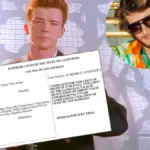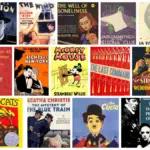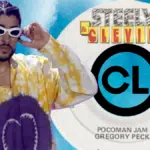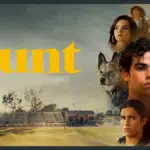The jury has spoken: Ed Sheeran’s “Thinking Out Loud” doesn’t infringe the copyright in Marvin Gaye’s “Let’s Get It On.”
It’s official: Ed Sheeran won’t be quitting the music business. If you were hoping that Ed Sheeran would quit the music business, sorry mate. Everyone else should be deeply relieved. Long live the I-iii-IV-V chord progression.
Today, a seven-person Manhattan federal jury unanimously found that Sheeran “independently created” his 2014 hit “Thinking Out Loud,” and therefore didn’t infringe the copyright in the Marvin Gaye 1973 R&B classic “Let’s Get It On.” Barring an appeal, this will conclude the long-running lawsuit brought by the heirs of “Let’s Get It On” co-composer Ed Townsend.

Just yesterday afternoon, Southern District of New York judge Louis Stanton instructed the jury that “Independent creation is a complete defense, no matter how similar that song is.” In other words, if Sheeran and co-composer Amy Wadge were able to prove that they came up with “Thinking Out Loud” on their own, the jury could go home—the defendants couldn’t have infringed the copyright in “Let’s Get It On.”
And that’s exactly what the jury found after deliberating for just under three hours. (Read the special verdict form here.) This means that the jurors didn’t need to decide some of the most hotly-contested issues of the two-week trial, including whether the “selection and arrangement” of the otherwise unprotectable chord progression, harmonic rhythm, and pitch sequences in “Let’s Get It On” were sufficiently numerous and original to qualify for copyright protection.
The jury also never reached the ultimate question of substantial similarity. Still, in deciding independent creation, the jurors no doubt considered testimony and evidence about all of the songs by other composers that contain similar elements to the ones at issue in this case. The similarities claimed by the plaintiffs are standard musical building blocks, and the combination of a common chord progression and a common rhythmic pattern isn’t original or even particularly noteworthy. (If you want to learn more, I recommend checking out what forensic musicologist Brian McBrearty had to say about the lawsuit.)
So there you have it. Sheeran wins, western civilization lives to see another day, and Ticketmaster doesn’t have to issue a bunch of refunds for Sheeran’s summer concert tour. The jury’s verdict may not prevent another plaintiff from filing a similar lawsuit, but it should prevent a thousand plaintiffs from filing a thousand similar lawsuits, and that’s a good thing.
At least, that’s what I think. Let me know what you think in the comments below or @copyrightlately.







1 comment
This case, and the Blurred Lines and Led Zeppelin cases, should have been dismissed or rejected via summary judgment long before they got dragged out in litigation. That would have happened, I think, if the cases had involved literary works with the same degrees of similarity. In the realm of story, judges seem more self-assured in getting rid of overreaching infringement claims. It’s relatively easy and intuitive for a judge to say “oh I’ve seen that plot on TV a dozen times or more, the plaintiff can’t monopolize that.” Though a judge may be a music fan, analyzing the musical ingredients of similarity requires, it seems, more technical knowledge than dissecting the plots and characters in a book or screenplay. Of course, turning the analysis over to a jury may or may not improve the degree of knowledge in the room. It would if one of the jurors were a guitar player!